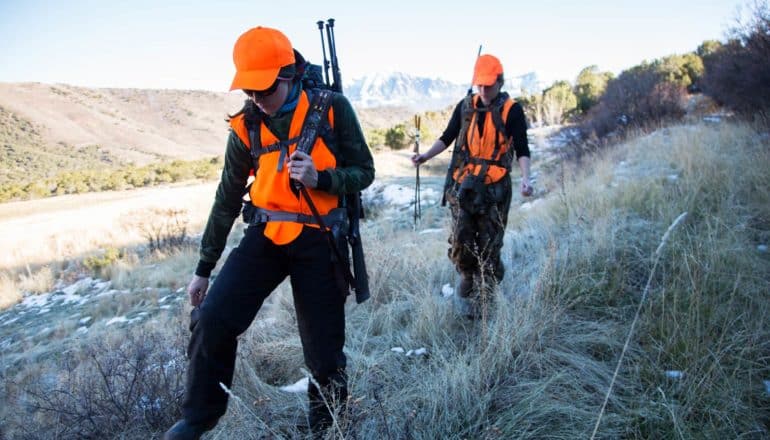
The future of hunting in the United States might look different than it has in the past, research finds.
In the Journal of Wildlife Management, researchers report findings from a nationwide survey of college students’ interest and participation in hunting. They found current, active hunters were more likely to be white, male, and from rural areas, and to have family members who hunted. But they also found a group of potential hunters—with no hunting experience but an interest in trying it—who were more diverse in terms of gender, race, and ethnicity.
“There are a lot of potential hunters out there who look nothing like current hunters, suggesting there are many different pathways into hunting,” says study coauthor Lincoln Larson, associate professor of parks, recreation, and tourism management at North Carolina State University. “We are working to find messages and strategies that resonate with new and diverse groups.”
In the study, researchers surveyed 17,203 undergraduates at public universities in 22 states from 2018 to 2020 to understand college students’ perspectives on hunting. Recruiting new hunters has become a priority for state wildlife agencies as declines in hunting participation have also meant a reduction in a vital source of funding for agencies’ operations: revenue from hunting licenses and excise taxes on hunting gear and ammunition.
“For nearly 100 years, hunting and angling have combined to provide a majority of wildlife conservation funding in the United States,” Larson says. “Without people participating in these activities, our current conservation model won’t work. By helping college students connect with public lands and wildlife, we can create a more sustainable source of funding into the future.”
Who’s open to hunting?
They found 29% of all students in the survey had hunted at some point in the past, and another 11% had accompanied a hunter in the field. The biggest predictor of whether a student hunted was having an immediate family member who also hunts.
When they sorted students into categories of active, potential, lapsed, and non-hunters, they found approximately 26% of students were active hunters. They were 84% white, 74% male, and many were from rural hometowns. In addition, most active hunters had immediate family members who also hunted, and just 7% reported no social support for hunting.
In comparison, the largest group of college students were non-hunters, at 50%. The smallest group, at 3%, were lapsed hunters. Of the students, 20% were potential hunters, which meant they said they might try it once, or they might hunt rarely or regularly in the future.
Potential hunters were a more diverse group compared to active hunters. Of them, 47% were female, and 38% identified as either Black or African American, Hispanic or Latinx, Asian, American Indian, or other.
Of potential hunters, 43% were from urban hometowns, 74% did not have immediate family members who hunt, and 79% were majoring in fields outside of agriculture or natural resources.
“We found many potential hunters who don’t share the same attributes as active hunters,” Larson says. “What’s motivating them, what’s limiting their participation, and how do we build a bridge to help connect them to hunting and wildlife conservation?”
Ethical, local meat
For students across the survey, getting ethically and locally sourced meat was the biggest motivator for hunting. Students across all groups also supported hunting as a conservation tool. Hunting for social reasons or for sport were more prominent motivations among active hunters. The biggest constraint they found among non-hunters, potential hunters, and lapsed hunters was interest in other activities.
“One of our biggest takeaways is that many students, regardless of their background, support ecological conservation motivations for hunting. They care about controlling over-populated species and about improving personal and environmental health by eating local game meat,” says lead author Victoria Vayer, a former graduate student in parks, recreation, and tourism management at NC State.
“If we use messaging that relates to those motivations, instead of emphasizing contentious things like trophy hunting, we could reel in more potential hunters without eroding support among people who don’t hunt.”
Funding for the research came from the Association of Fish and Wildlife Agencies’ Multistate Conservation Grant Program, through the US Fish and Wildlife Service Awards.
Source: NC State
The post Ethical meat, not trophies, could inspire new hunters appeared first on Futurity.
from Futurity https://ift.tt/3uMriNF
No comments:
Post a Comment